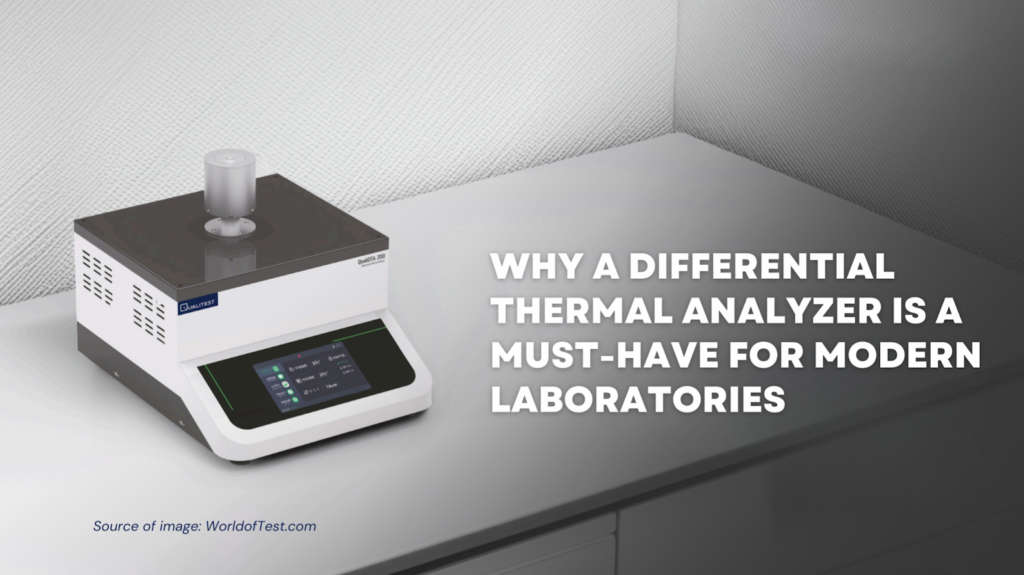As industries push for better materials and higher precision, thermal analysis plays a pivotal role in research and quality control. Among the tools available, the Differential Thermal Analyzer (DTA) stands out as a reliable solution for detecting thermal events with accuracy. Its advanced features make it an indispensable instrument for modern laboratories.
Understanding the Growing Demand for DTAs
Thermal analysis has become essential across multiple industries, from material science to pharmaceuticals. The Differential Thermal Analyzer is gaining popularity because of its ability to provide precise measurements for processes like phase transitions, chemical reactions, and decomposition. Its role in identifying thermal behavior ensures that researchers and manufacturers stay ahead in today’s competitive landscape.
What Sets a Differential Thermal Analyzer Apart?
The DTA offers unique advantages over other thermal analysis tools, making it a preferred choice in laboratories.
- High Sensitivity to Thermal Events
Detects even minute temperature differences between the sample and reference material. - Broad Temperature Range
Capable of analyzing a variety of materials, from metals to polymers, over wide temperature intervals. - Compact and User-Friendly Design
Modern DTAs feature intuitive interfaces and software, simplifying complex testing processes. - Cost-Effective Performance
Compared to some high-end thermal analyzers, DTAs provide excellent value for their functionality.
Boosting Productivity with a Differential Thermal Analyzer
In laboratory workflows, speed and reliability are crucial. A Differential Thermal Analyzer enhances productivity by delivering fast, consistent results. Its real-time data output allows scientists to monitor thermal behavior during tests, reducing downtime and eliminating repetitive trials. Whether testing ceramics or evaluating pharmaceutical formulations, DTAs streamline operations while maintaining accuracy.
Examples of DTA Applications
- Material Science
Understanding phase transitions, thermal stability, and decomposition properties. - Pharmaceuticals
Evaluating reaction kinetics and ensuring drug formulation stability. - Polymers and Plastics
Monitoring melting points and crystallization behavior for quality control.
By handling diverse applications with precision, DTAs cater to the evolving needs of research and production facilities.
Factors to Consider When Choosing a DTA
Selecting the right DTA ensures long-term benefits and optimal performance. Here are key considerations:
- Accuracy and Sensitivity
Ensure the device can detect minute thermal events for comprehensive analysis. - Temperature Range
Match the DTA’s capability to the specific requirements of your applications. - Ease of Operation
Look for systems with user-friendly interfaces and advanced data management options. - Compliance with Standards
Verify that the equipment meets international testing standards to ensure reliable results.
A well-chosen Differential Thermal Analyzer is an investment that supports efficient workflows and consistent outcomes.
The Long-Term Value of a High-Quality DTA
A high-performance DTA does more than analyze samples; it contributes to long-term success. Industries relying on thermal analysis benefit from improved product quality, reduced waste, and compliance with regulations. These tools are pivotal in achieving accurate research results, making them a vital addition to modern laboratories.
Stay Ahead with Advanced Thermal Analysis Tools
Thermal analysis continues to drive innovation across industries. Investing in a Differential Thermal Analyzer equips laboratories with the ability to meet growing demands and maintain a competitive edge. By combining precision, efficiency, and versatility, DTAs prove their worth in diverse applications.
We recommend visiting the Qualitest website to explore advanced Differential Thermal Analyzers designed to meet today’s challenging requirements. Discover how these solutions can elevate your laboratory’s capabilities.







